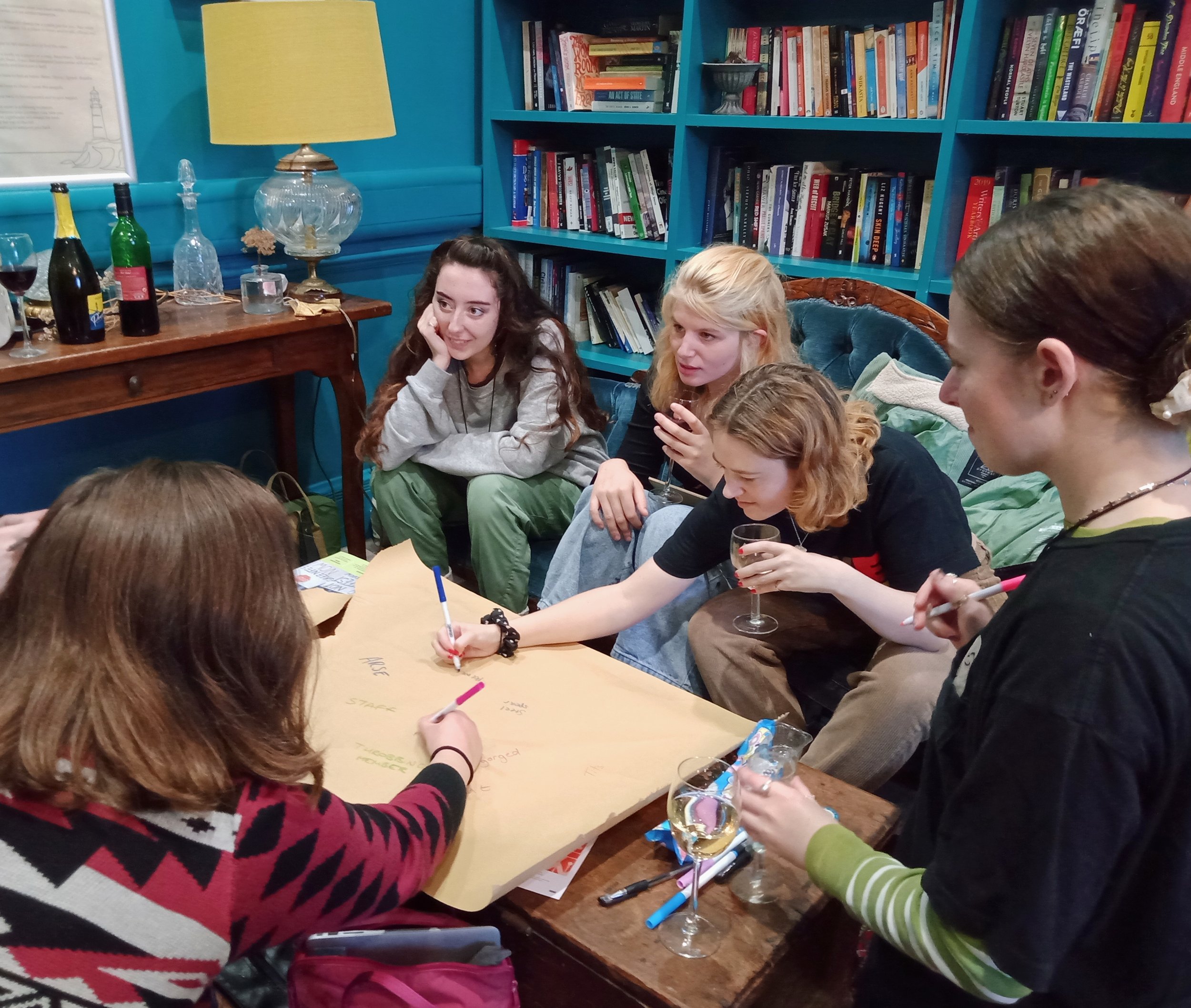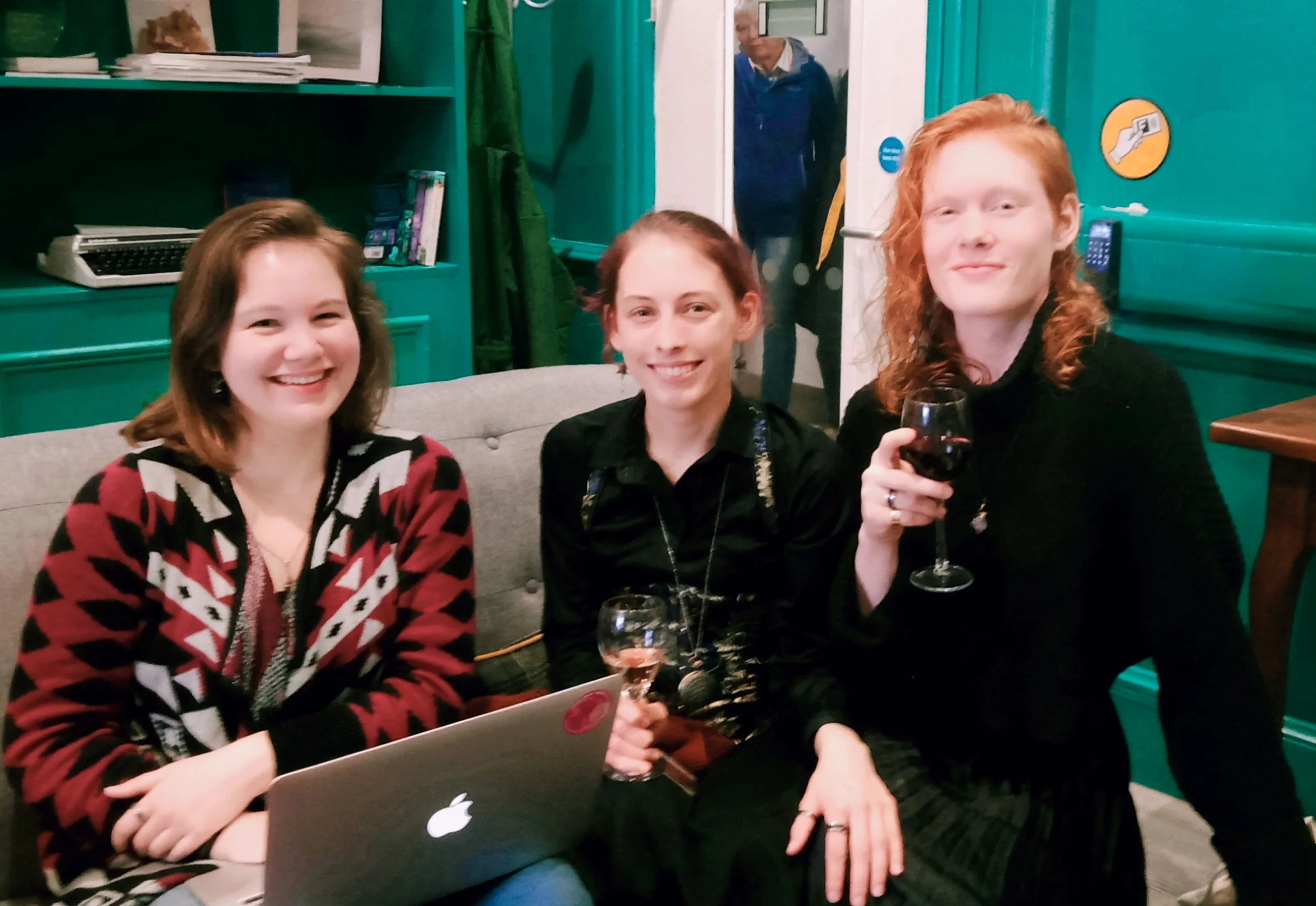“It’s not all about shouting WILLIES“ - a suggestive afternoon at Falmouth Book Festival
I arrive on Campus on a rainy Friday afternoon, where an alluring flipchart message beckons me to enter the lighthouse for The Love Formula, a workshop about writing erotic fiction. Put together by Jennifer Young and Jo Parsons, the event is one of the uni’s contributions to this year’s Falmouth Book Festival.
Upon entering the space, I am greeted with laughter and merriment. The cosy, library-like rooms of the lighthouse are changed today; the atmosphere is light-hearted and raucous. People have gathered in small groups and squeezed closer together on sofas and armchairs. In fact, there’s been such high demand that the refreshments table has to be quickly restocked while Jo and Jennifer deliver instructions.
The first task takes us all by surprise. Equipped with posters and colourful felt pens, we are asked to jot down all kinds of words and synonyms for genitalia, especially the slangy ones. Vibrant vocabulary soon fills the air. Jo prompts the exercise by giddily exclaiming “whirling whangers" before she goes on to explain that, "when writing erotica, it’s important to get ‚the bad stuff‘ out of the way first.“
So that’s what we do, and our posters are soon filled with an array of rather unspeakable jargon.
To the audience’s delight, Jo next shares a series of quotes that won a literary prize for bad erotica. Still shocked and appalled by the choices other writers have made, we are then told to go ahead and write our own terrible erotic fiction. Our group goes for a caving theme, and I think I shall abstain from going into too much detail at this point…
After each group has read their piece aloud, and we nearly collapsed with laughter, the mood takes on a slightly more earnest tone. Jennifer talks us through the steps of writing a genuine scene between lovers, while Jo kindly asks us “not to include cats or daddies“ (for her own mental health).
So focussing on the ‘fun-bit‘, Jennifer tells us to pay attention to fingers and eye movements, to try and embody the feeling of the kiss or the lovemaking. “Let the outside world slowly disappear and ask: what are the nerves and the synapses doing?“
The room is hushed, and everyone gets absorbed in the task of portraying emotional intensity. Jo prompts us to “show how actions and words cover up for what’s going on inside.“
It dawns on me that the formula has worked because I find myself remembering a long-ago moment of intimacy, and suddenly, I have the words to describe it.
Afterwards, some members of the audience are brave enough to read out their scene. The results are promising, and beautifully reflect the writing process; an answer to “Show us what you want to know about.“ Although I’m not ready to read my piece aloud, I feel content, and a smile lingers while I’m packing up my things. Skimming over the lines in my notebook, I know I will return to this, expand it and make it more.





